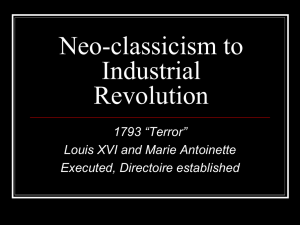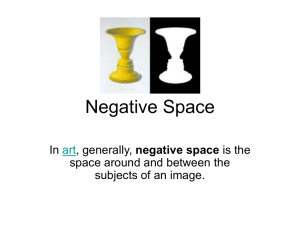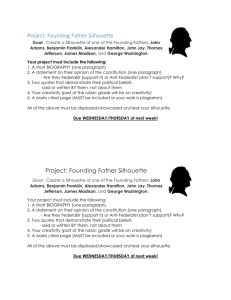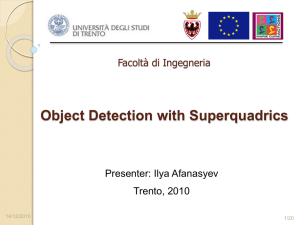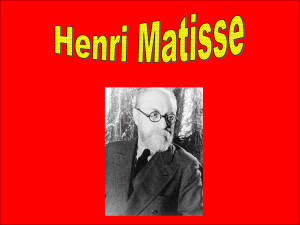The Early Career of Etienne de Silhouette
advertisement
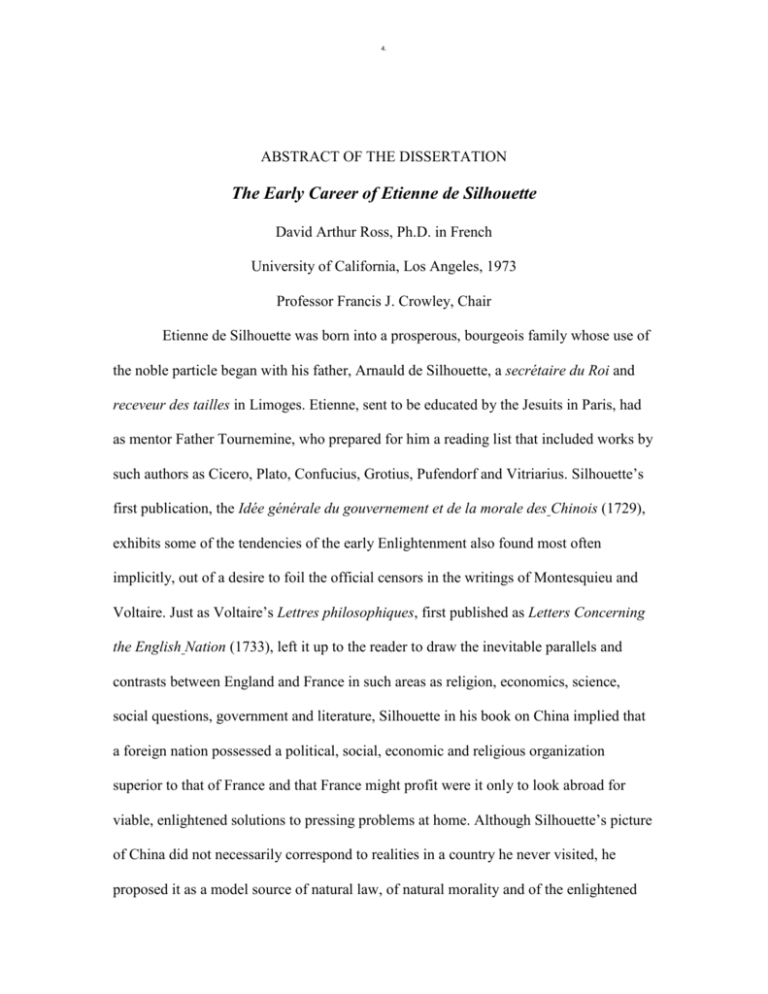
4. ABSTRACT OF THE DISSERTATION The Early Career of Etienne de Silhouette David Arthur Ross, Ph.D. in French University of California, Los Angeles, 1973 Professor Francis J. Crowley, Chair Etienne de Silhouette was born into a prosperous, bourgeois family whose use of the noble particle began with his father, Arnauld de Silhouette, a secrétaire du Roi and receveur des tailles in Limoges. Etienne, sent to be educated by the Jesuits in Paris, had as mentor Father Tournemine, who prepared for him a reading list that included works by such authors as Cicero, Plato, Confucius, Grotius, Pufendorf and Vitriarius. Silhouette’s first publication, the Idée générale du gouvernement et de la morale des Chinois (1729), exhibits some of the tendencies of the early Enlightenment also found most often implicitly, out of a desire to foil the official censors in the writings of Montesquieu and Voltaire. Just as Voltaire’s Lettres philosophiques, first published as Letters Concerning the English Nation (1733), left it up to the reader to draw the inevitable parallels and contrasts between England and France in such areas as religion, economics, science, social questions, government and literature, Silhouette in his book on China implied that a foreign nation possessed a political, social, economic and religious organization superior to that of France and that France might profit were it only to look abroad for viable, enlightened solutions to pressing problems at home. Although Silhouette’s picture of China did not necessarily correspond to realities in a country he never visited, he proposed it as a model source of natural law, of natural morality and of the enlightened 4. despot truly concerned with the welfare of the people. These “new ideas” implied a relativistic outlook that were also to be found in most of Silhouette’s subsequent printed work. Yet the main interests of this moderate, “constructive” liberal, whom some called a philosophe chrétien, lay elsewhere as he had been destined, it seems, for “practical” political affairs from the very beginning of his career. Silhouette’s observations in the Voyage de France, d’Espagne, de Portugal et d’Italie (compiled in 1730 for Foreign Affairs Minister Chauvelin who underwrote the Silhouettes’ Grand Tour) give evidence of an astounding grasp of history and of politics most unusual in one so young. This travel narrative also contains a certain amount of the esprit d’opposition (criticism of abuses in the Catholic Church, of French institutions and of Cardinal Fleury), which perhaps explains why it circulated clandestinely in manuscript form during the author’s lifetime. Previous studies of Silhouette, who in 1759 briefly held the important position of contrôleur général des finances, lack a detailed account of his enthusiasm for the English model (especially in commerce, government and literature), of his activities in England where he spent eight years studying English institutions, commerce and literature while in the employ of the directors of the French royal tax farm with the duty of purchasing tobacco in London. At the same time, Silhouette worked as an agent for the government of France and sent home valuable intelligence data concerning secret debates in Parliament, maritime charts and Britain’s preparations for war. My study is based on Silhouette’s printed work and unpublished correspondence which reveal interesting political and literary aspects of Anglo-French relations during the period of the early Enlightenment as well as his contributions to the advancement of liberal thought in France. Silhouette’s translations from the English were more than once the objects 4. intense criticism and the topics of burning controversy in contemporary periodicals, particularly in those bearing the stamp of orthodoxy. Silhouette was one of several Frenchmen produce a translation into his native tongue of Alexander Pope’s Essay on Man and Universal Prayer. The ardent and prolonged quarrel concerning the deistic content of the Essai sur 1’homme is well known, while Silhouette’s role in the defense of Pope is not. He was responsible for making Bishop William Warburton’ s celebrated defense of Pope available in French. Silhouette also published an adaptation of Warburton’s Divine Legation of Moses and Alliance of Church and State as the Dissertations sur l’union de la religion, de la morale et de la politique (1742), which argue the case for greater freedom of conscience and toleration in France. Through the medium of Silhouette’s Dissertations, the Anglican bishop’s arguments against atheism and Bayle’s paradox were available to the abbé Yvon who drew from them in writing several articles included in the Encyclopédie. It is clear that, as a translator of English works into French, as Pope’s champion (in translating Warburton’s defense and also in various revisions of prefaces to the Essai that went through numerous editions in a very short time), Silhouette served as a valuable link between England and France, and as such played during his early career an important role in the diffusion, apology and hence legitimization of certain liberal ideas in such diverse areas as economics, politics, literature, religious tolerance and natural religion. This dissertation of 670 pages is on file with University microfilms, Ann Arbor, Michigan. A copy in two volumes is also located at the Southern Regional Library Facility (SRLF) of the UCLA campus. 4.

